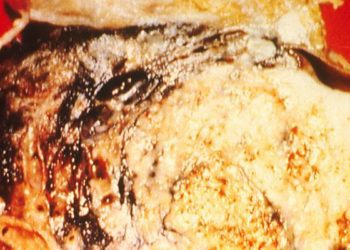2 Minute Medicine: Pharma Roundup – Perioperative Immunotherapy Efficacy, Expanded Prostate Cancer Indication, Rapid Subcutaneous Myeloma Administration, and Regulatory Compliance Findings [June 4 2025]
Imfinzi Combo Shows Promise in Early Gastric Cancer
At the American Society of Clinical Oncology meeting earlier this week, investigators shared the first look at the 950-patient MATTERHORN study showing that peri operative durvalumab plus FLOT trimmed the combined risk of progression, recurrence or death by 29 percent. A nimble liquid biopsy strategy let researchers track minimal residual disease in real time without extra scans, a trick many oncologists say could rewrite surgical playbooks. The same day, a peer reviewed analysis appeared in the New England Journal of Medicine and confirmed that adverse events remained manageable. Company scientists at AstraZeneca hinted at rapid global filings, arguing the data justify fast track status. Memorial Sloan Kettering’s Yelena Janjigian called the result “practice changing,” noting that roughly forty thousand resectable cases arise across the G7 every year. She also highlighted a two thirds completion rate for every planned dose, easing concerns that immunotherapy might delay surgery. Editorial writers at The ASCO Post went further, labeling MATTERHORN the most important peri operative gastric cancer study in a decade.
FDA Widens Nubeqa’s Reach in Metastatic Prostate Cancer
On June 3rd the US Food and Drug Administration lifted chemotherapy restrictions and cleared darolutamide for every man with metastatic castration sensitive disease receiving standard hormone suppression. The green light rides on the phase 3 ARANOTE trial, where darolutamide plus androgen deprivation cut radiographic progression by forty six percent and delayed quality-of-life decline. Clinical commentators at OncLive predict immediate practice impact because many veterans cannot tolerate docetaxel. A detailed bedside perspective from Medscape highlights the agent’s seizure risk of under one percent, a number that could tip prescribing in frail patients. Bayer executives reaffirmed a three billion-euro sales target and told analysts the clean safety record in ARANOTE should help the drug muscle past Xtandi in first line settings. The company’s US medical affairs team released an updated prescribing guide only hours after the agency decision, underscoring commercial urgency. Insurers are already updating pathways, and payers say formulary approvals could appear by the end of the month.
Wearable Sarclisa Injector Cuts Infusion Time to Minutes
Data presented yesterday at ASCO suggest that a subcutaneous formulation of Sanofi’s anti-CD38 antibody Sarclisa, delivered with a hands free enFuse device, matches intravenous efficacy while shrinking chair time from hours to roughly five minutes. The headliner IRAKLIA phase 3 readout, detailed in a Sanofi press release, showed near identical overall response rates and no new safety signals. The wearable enFuse injector from Enable Injections lets nurses start treatment, then step away while the device empties, potentially freeing clinic slots for cell therapies. Independent analysts at Pharmaphorum say convenience could help Sarclisa close the revenue gap with Johnson & Johnson’s Darzalex, which already offers a rapid push formulation. A parallel pharmacokinetic study published through GlobeNewswire confirmed bioequivalence, clearing a key regulatory hurdle. Sanofi plans global submissions in the first half of 2025 and hints at eventual home use for stable patients, a move patient advocates say could improve adherence and quality of life.
Watchdog Rebuke Puts Novartis on Notice
The United Kingdom’s Prescription Medicines Code of Practice Authority ruled on June 2nd that a third party email about radioligand therapy Pluvicto was disguised promotion, breaching the industry’s most serious Clause 2 and several disclosure rules. Coverage in FirstWordPharma notes that such findings are rare and carry reputational sting because companies must acknowledge them publicly. A separate STAT News column reports that compliance teams across Europe have started auditing conference coverage in response. Novartis simultaneously touted positive Pluvicto data in an earlier treatment setting, highlighted by Reuters, prompting critics to question marketing priorities. The full PMCPA case summary runs seventeen pages and details how a “news style” email funneled clinicians to branded content. Compliance lawyers say future penalties could include mandatory independent audits if repeat breaches occur, a sanction that dents boardroom credibility.
Image: PD
©2025 2 Minute Medicine, Inc. All rights reserved. No works may be reproduced without expressed written consent from 2 Minute Medicine, Inc. Inquire about licensing here. No article should be construed as medical advice and is not intended as such by the authors or by 2 Minute Medicine, Inc.









